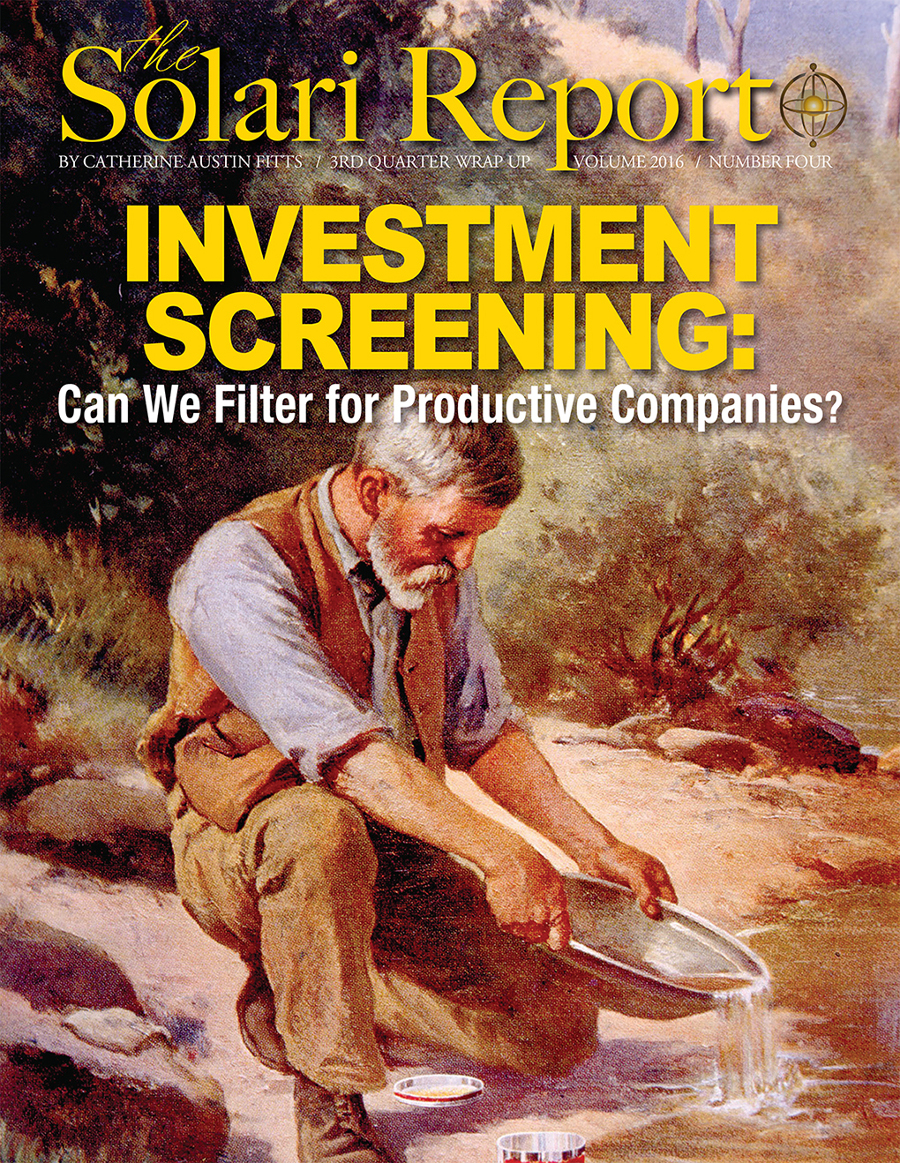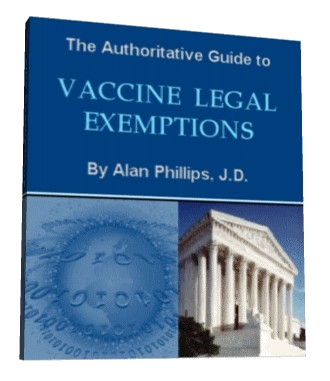
Read the Web Presentation
Read the Web Presentation for the 3rd Quarter Wrap Up here.
Read the Transcript here: PDF
Listen to the 3rd Quarter Wrap Up MP3 audio file
Download the 3rd Quarter Wrap Up audio file
“Shares of two major prison stocks dropped sharply Thursday after a report the U.S. Justice Department will end the use of private prisons…Corrections Corp. of America and GEO both briefly plunged more than 40 percent in midday trade.” ~CNBC, August 18, 2016
By Catherine Austin Fitts
This week on The Solari Report, I will present the theme of our 3rd Quarter Wrap Up: Investment Screening – Can We Filter for Productive Companies?
In the 2nd Quarter Wrap Up, I took an in-depth look at productivity growth, Productivity, Prosperity & the Popsicle Index, arguing that labor productivity has stalled in part because human productivity has been debased broadly. Now I shall look at the screening practices of the investment industry, particularly in regards to environmental, social and governance issues, and explore whether we can screen for companies that deliver fundamental productivity – both labor (in the workplace) and human (throughout our lives) productivity. As the debt financed growth model comes to an end, companies that depend on (i) cheap government debt for contracts and purchases or on (ii) central bank largessee for cheap capital may be less attractive than companies with products and services that serve real market demand and add demonstrable value to the wider economy.
A useful example is the recent U.S. Department of Justice announcement that they were not going to renew Bureau of Prisons contracts with private prison companies. As I have argued for years (See Building a New Investment Strategy and Dillon Read & Co and the Aristocracy of Stock Profits) it is not economic to put millions of non-violent offenders in prison at an annual all-in cost of approximately $150,000 + per prisoner (GAO, 1996). This cost is particularly high for prisoners who commit only minor offenses that should not be criminal felonies in the first place, and even higher for private prison companies to run prisons that government employees can run better and more cheaply when all liabilities are taken into consideration. Now we are in a budget squeeze and voters are balking at a private prison industrial complex that is inhuman both to enforcement targets and taxpayers. So the government cannot justify spending billions of dollars on a function that is not economically productive.
Institutional and retail investors want to invest in companies with a productive future – not in companies with balloons that could shrink or collapse as budget cutters target newly unaffordable crony capitalism. Remember the prestigious money manager who invested $1 billion in Fannie Mae equities in the Spring of 2008 only to watch their investment collapse months later when Fannie Mae was taken over by the Federal government? So, now is a good time to think about how we screen for productive companies that create enduring economic value for shareholders, employees, customers and the wider economy.
It’s the last week of the month, so no Money & Markets this week. I will address your questions for Ask Catherine next week.
For Let’s Go to the Movies, check out The Corporation, a documentary that explores the rise of the dominant institution of our day. It includes interviews with Ray Anderson whose efforts to build a global company that had a positive impact on the environment will inspire you with the possibilities for all of us.
Talk to you Thursday!
Related Reading:
Ray Anderson on Wikipedia
The Evolution of Cooperation on Wikipedia
Related Solari Audio Seminar
Beyond SRI: Is Socially Responsible Investment Hazardous to Your Wealth?



In Investment screening do you mean using Motif investing and building your own Motif, say something like investing in only Indian company’s involved in space exploration?
Looking into transferring 25% of my Roth IRA to Motif now.
Thank you
Michael